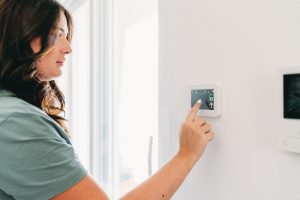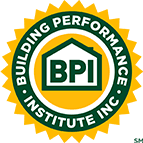As the humid season rolls in, many homeowners notice their air conditioners working overtime. High humidity levels can put a significant strain on your AC unit, making it harder to cool your home effectively. If your air conditioner is struggling, you might notice signs like longer cooling cycles, increased energy bills, and a musty smell in the air. To help your AC cope with the humidity and keep your home comfortable, here are three essential tips.
Just make sure you call us for AC repair in Lake City, FL, or for a dehumidifier installation.
1. Keep Your Air Filters Clean
One of the most common reasons an air conditioner struggles during humid seasons is due to clogged or dirty air filters. When the filter is clogged, your AC has to work harder to pull in air, reducing its efficiency. This not only leads to longer cooling cycles but also increases your energy consumption. Moreover, a dirty filter can cause moisture to accumulate, promoting mold and mildew growth, which can further diminish air quality.
Tip: Check your air filters every month during the humid season, and replace them if they appear dirty. If you have pets or live in an area with high pollen counts, you may need to replace the filters more frequently. Regular maintenance of air filters ensures that your AC can effectively remove humidity from the air and maintain a comfortable indoor environment.
2. Use a Dehumidifier
Sometimes, even a well-maintained air conditioner needs a little help, especially in extremely humid conditions. A dehumidifier can be a game-changer. By removing excess moisture from the air, a dehumidifier reduces the workload on your AC unit, allowing it to cool your home more efficiently.
Using a dehumidifier alongside your AC not only helps in reducing the humidity level but also improves the overall air quality. It minimizes the chance of mold growth and eliminates the musty odors often associated with high humidity.
Tip: Schedule whole-home dehumidifier installation with our team of professionals when you think this moisture is your biggest issue.
3. Seal and Insulate Your Home
An air conditioner’s effectiveness can be severely hampered if your home isn’t properly sealed and insulated. Leaky windows, doors, and ducts can let warm, humid air into your home, forcing your AC to work harder to maintain the desired temperature. This not only increases your energy bills but also reduces the lifespan of your air conditioner.
Tip: Inspect your home for any gaps or cracks around windows, doors, and ductwork. Seal any leaks with weather stripping, caulk, or insulation. Additionally, consider upgrading your insulation to ensure that your home retains cool air during the hot, humid months. Proper insulation also helps in maintaining a consistent indoor temperature, reducing the strain on your AC unit.
A humid season can be tough on your air conditioner, but with these three tips—keeping air filters clean, using a dehumidifier, and sealing and insulating your home—you can help your AC perform at its best. Regular maintenance and a few strategic adjustments can go a long way in ensuring your home stays cool and comfortable, even in the most humid conditions. Don’t wait until your AC starts struggling; take proactive steps now to keep your home’s air quality high and your energy bills low.
We are constantly improving lives by improving homes. Schedule an appointment with North Central Florida Air Conditioning today!








